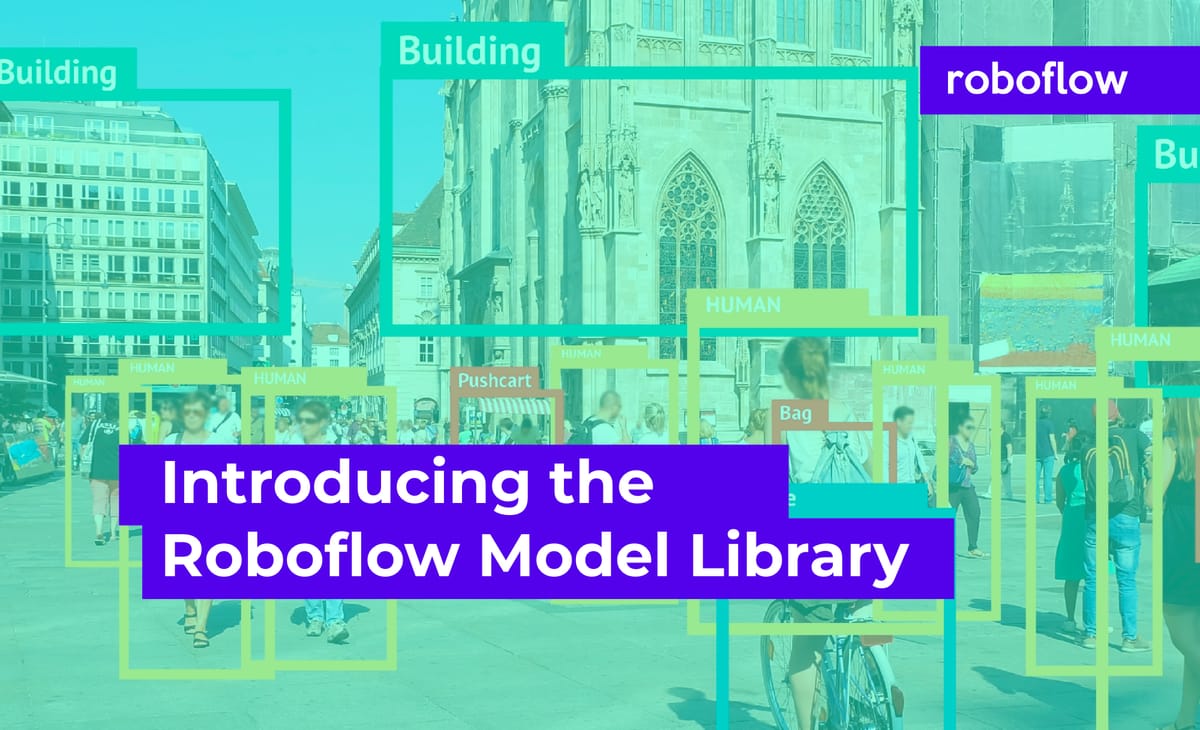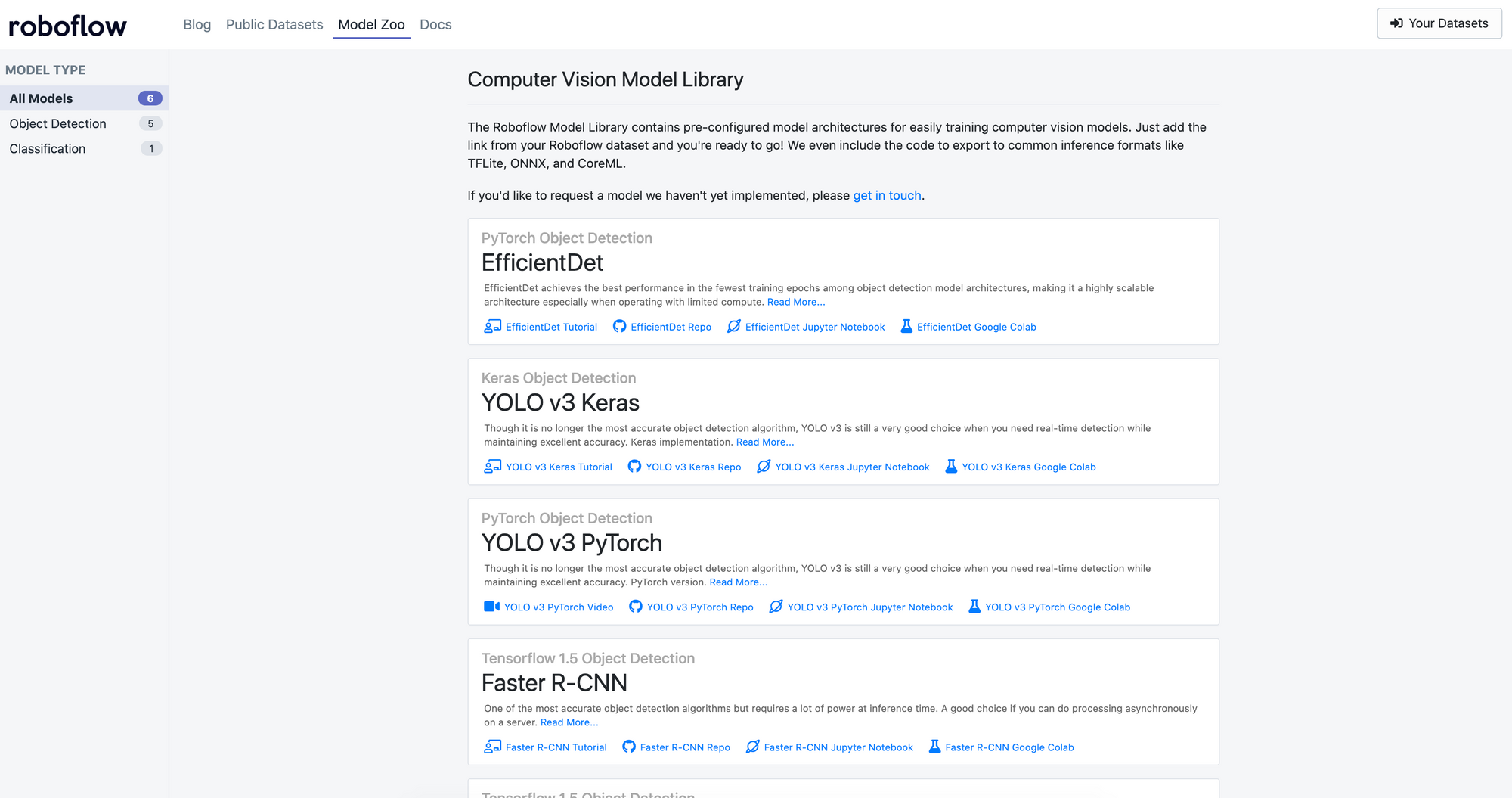
Over the past few months we've been building up a library of easy to use, open source computer vision models. We've now given them a home: the Roboflow Model Library.

There, you can access information about each model (we will even be adding pros/cons, and benchmarks of each model soon) and quickly access the code on github, via a downloadable Jupyter notebook, or on Google Colab (which provides free GPUs for training).
So far we have 7 open source object detection models and 3 open source classification models. This will grow over time. Our goal is to have easy to use, up to date models right at your fingertips.
Importantly, these notebooks all work seamlessly with Roboflow. So if you've uploaded your images and annotations, you can seamlessly export them for use with any of these models in a single click. That means you can quickly experiment across a wide variety of models and frameworks to get solid baselines (or ablation tests) and find a good starting point for tuning.
Cite this Post
Use the following entry to cite this post in your research:
Brad Dwyer. (Apr 28, 2020). Introducing the Roboflow Model Library. Roboflow Blog: https://blog.roboflow.com/roboflow-model-library-launch/
Discuss this Post
If you have any questions about this blog post, start a discussion on the Roboflow Forum.
